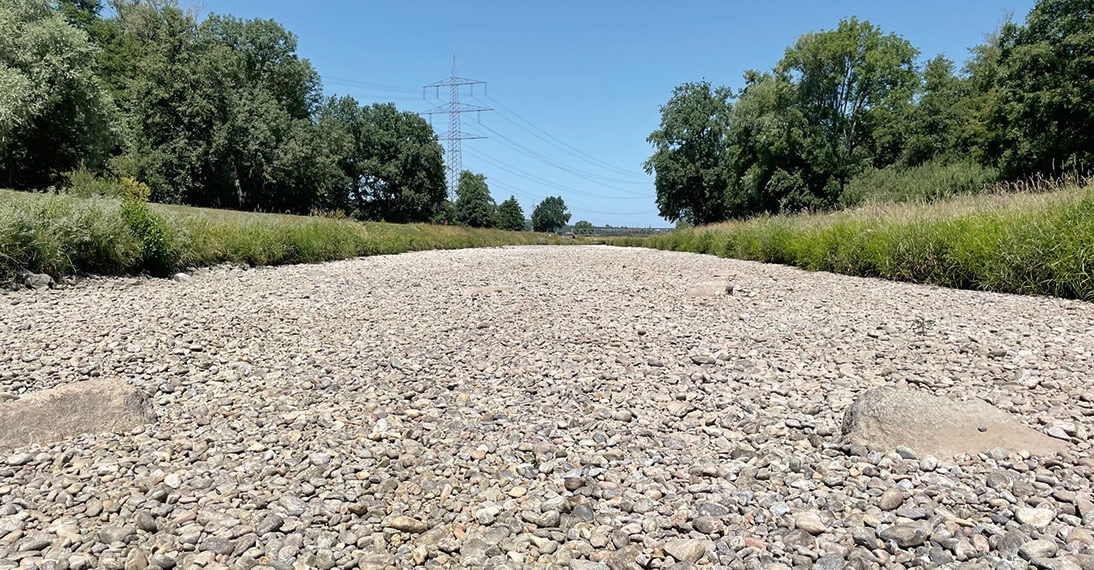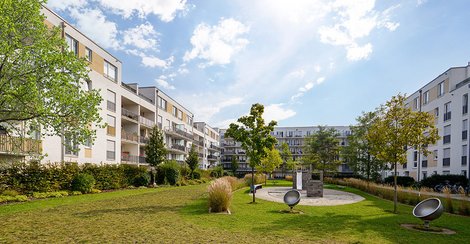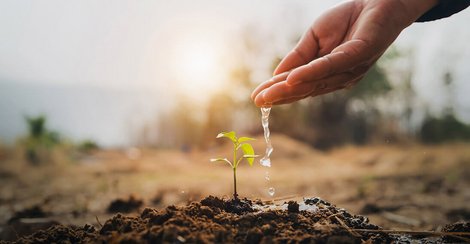Lack of Groundwater - Already an Issue in Europe Too
Climate change and water scarcity - two words that most people probably associate with each other. However, many people are not yet aware that water scarcity already exists in Central Europe.
The effects of dry summers are evident: riverbeds with little or no water, stagnant water bodies which slowly evaporates and also devastating forest fires. Another problem is soils that are too dry. For example, when it rains heavily, the rainfall cannot be fully absorbed by the soil. The water runs off the surface and cannot seep away, which encourages floods and inundations. Dry winters with scant precipitation and minimal snowmelt exacerbate the problem, failing to replenish groundwater levels depleted during the summer months.
Groundwater in Europe
There has been no significant rise in groundwater levels in Central Europe since the summer months of 2018 and 2019. Torsten Mayer-Gürr and Andreas Kvas from the Institute of Geodesy at Graz University of Technology documented the change in groundwater levels as part of the EU Global Gravity-based Groundwater Product (G3P) project. Using satellite data, the researchers were able to determine the water situation in Europe. Mayer-Gürr comments: "A few years ago, I would never have imagined that water would be a problem here in Europe, especially in Germany or Austria. We are actually having problems with the water supply here, so we have to think about it.
France, Switzerland and Italy, among others, are already experiencing increasing water shortages. Below-average rainfall, long, hot summers and little precipitation in winter mean that the soil continues to dry out. This can also be seen in the water levels of major rivers such as the Danube, Rhine, Po and Warte, which are carrying less water than they have for a very long time. In many places in Europe, restrictions on water use are therefore already in place in summer: washing cars, filling pools, sprinkling lawns.... Water must be saved wherever possible.

What can be done about sinking groundwater?
In the long term, the water situation in Europe is alarming. Something must be done now to make water management future-proof and sustainable. This depends on each and every one of us, but also on the countries on a large scale.
In addition to the water-saving measures that have been imposed, countries are also starting to think more long-term. Portugal, for example, wants to promote irrigation with industrial water and build seawater desalination plants. Italy is modernising its pipeline infrastructure to curb the current water loss rate of nearly 42%. Germany, too, has formulated a national water strategy, advocating for the transformation of urban areas into "sponge cities" capable of retaining water and adapting to climate change. In addition, risk areas are to be better protected against heavy rainfall.
At the household level, conserving drinking water and maximizing rainwater utilization are pivotal.




